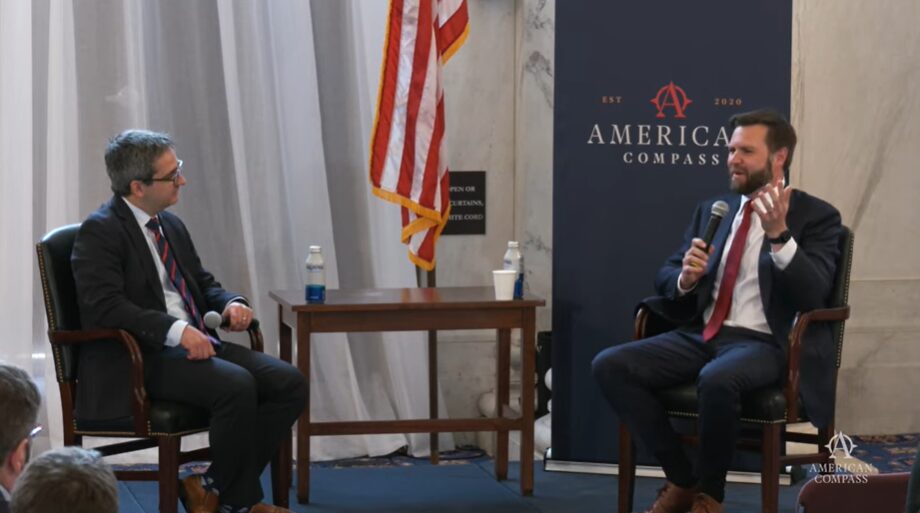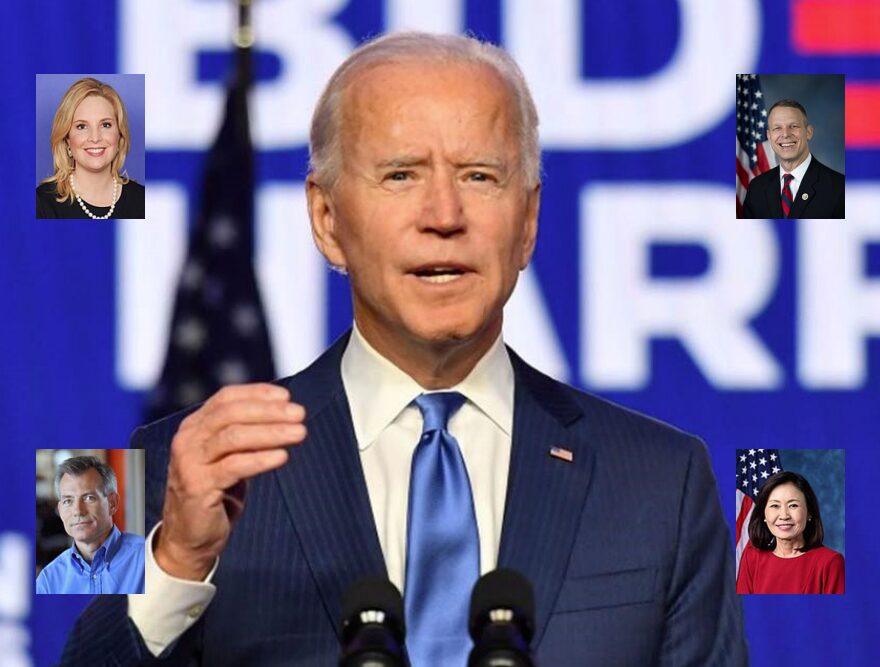Is This Any Way to Run a City’s Schools?
Leaked CTU Proposals Won’t Do Anything to Improve Schools’ Poor Performance

Political pundits of every stripe have noted, and attempted to explain, a dramatic shift in recent years in the coalitions that back America’s two major political parties.
Republicans, they find, are increasingly popular among working-class voters, while Democrats enjoy increased support from rich elites.
Many, if not most, political observers have taken this as a sign that the Republican message is working, while Democrats need to change course to avert a disaster.
But a few are advancing the confusing argument that, because the GOP is now more working-class, Republicans need to reshape dramatically their labor-policy message so that it closely resembles the one propagated by the Democrat Party that working-class voters are fleeing.
Despite its loopy logic, this line of thinking has been increasingly adopted by a small but vocal band of Republican senators and D.C. “think tanks” who want to reimagine key aspects of the party’s message.
Unfortunately for workers who oppose monopolistic unions, this movement has placed a particular emphasis on abandoning pro-freedom labor policies supported by the vast majority of Americans in favor of union coercion.
Union bosses have long sought to expand their government-granted power to corral workers into unions. They already have the power to collect compulsory dues and to force non-consenting workers to abide by union-negotiated monopoly-bargaining agreements. But they still aren’t satisfied.
Big Labor activists dream of establishing “sectoral bargaining,” industry-wide contract monopolies that put union bosses in charge of the workplace conditions for all employees across entire sectors of the economy.
The Hewlett Foundation, a pro-Big Labor charitable organization, has funded two notable efforts to promote sectoral bargaining.
The first was a report called Clean Slate for Worker Power, a collaboration between top officials of nearly every major U.S. labor union and Big Labor academics at Harvard University. It recommended a system of sectoral bargaining empowering union officials to wield monopoly control over a sector’s workers after obtaining consent from as few as 10% of them.
The second is a D.C. think tank called American Compass. As part of its mission to promote what it calls “conservative economics,” it wants the government to foster “broad-based bargaining models,” in which self-styled “representatives for all workers in a group defined by region, industry, and occupation” negotiate with “representatives for the counterpart employers.” Supposedly, this top-down system will foster more “worker power.”
American Compass’s founder, Oren Cass, has denounced Right to Work laws on X (formerly Twitter), claiming they “undermine” the American labor system, even though they merely give workers the option to not pay dues to a union they disagree with.
Mr. Cass rolled out his latest policy agenda at an event held on Capitol Hill late last year.
The event was attended by four U.S. senators, including J.D. Vance (R-Ohio) and Marco Rubio (R-Fla.). Sens. Vance and Rubio had both previously signed an American Compass letter calling for sectoral bargaining to be considered as an option in America.
At the event, Mr. Vance called American Compass “an invaluable partner in steering the conservative movement in a more pro-family, pro-worker direction.”
Mr. Rubio similarly lauded the outfit for doing as much as, or more than, “Washington’s largest think tanks” to “shape the national conversation and our economic policy . . . .”
Neither senator directly addressed American Compass’s calls for expanded union monopolies.
“These senators have a choice to make,” said National Right to Work Committee President Mark Mix. “They can side with Big Labor academics and pro-forced unionism nonprofits whose goal is to expand union bosses’ coercive power, or they can embrace employee freedom and the Right to Work.
“Whether intentionally or not, Mr. Vance and Mr. Rubio have given the impression that their vision for labor law reform includes expanded monopoly bargaining and perhaps even compulsory unionism. If they wish to dispel that impression, their cosponsoring S.532, the National Right to Work Act, would be an excellent first step.”
“Mr. Vance and Mr. Rubio claim they regard blue-collar workers as core supporters of theirs. That’s another reason they should embrace Right to Work,” Mr. Mix continued. “History has shown time and again that Right to Work is a winning political issue among all types of voters, but especially among blue-collar voters.”
“Wisconsin’s 2022 U.S. Senate race is a case in point. Had only so-called ‘white-collar’ households voted in that contest, the pro-forced unionism candidate would have won easily.
“But as a consequence of the lopsided vote against him by the Badger State’s blue-collar majority, union-label Democrat Mandela Barnes narrowly lost to Sen. Ron Johnson, who had pledged to support Right to Work.
“Two years earlier, in 2020, even as Joe Biden won the White House, every single House National Right to Work Act cosponsor running in November won reelection, and Right to Work held its ground in the Senate.”
One consequence of such electoral wins has been a surge in support for the National Right to Work Act in Congress.
In 2023, this legislation gained cosponsors at a record pace, and had its first ever hearing in the House of Representatives.

The success of pro-Right to Work candidates — and in turn, of Right to Work legislation in Congress — stems from the issue’s popularity among voters.
Polls consistently show that 70-80% or more of Americans think that union dues should be voluntary, with similar levels of support among union and non-union members.
At American Compass’s event, Mr. Vance noted the vast disconnect between ordinary workers and the union bosses who claim to represent them, and appealed to the audience for help in understanding why:
“We have to figure out why it is that labor membership is increasingly on our side, and labor leadership is . . . statically aligned with the left. I’m convinced there is a structural reason why this is true. If you’re a labor lawyer, and you have an idea, please come to me.”
“The ‘structural explanation’ J.D. Vance is searching for can be summed up in one word: compulsion,” said Mr. Mix.
“Union officials typically pay no price for being out of touch with the rank-and-file, because they get their salaries from compulsory dues that workers have no choice but to pay.
“Were unions voluntary organizations that relied on workers’ consent, they’d be much more reluctant to alienate their members by advancing political positions that most workers oppose.
“The legislative solution is as simple as the explanation: the National Right to Work Act, which would immediately eliminate compulsory union dues for roughly 5.5 million workers around the country without adding a single word to federal labor law.
“It’s the right policy, it’s the popular policy, and I encourage any senator who wants to boost his or her support with working Americans to support it.”
This article was originally published in our monthly newsletter. Go here to access previous newsletter posts.
To support our cause and help end forced unionism, go here to donate.

Leaked CTU Proposals Won’t Do Anything to Improve Schools’ Poor Performance

Wherever Big Labor wields the power to collect forced union dues, union bosses funnel a large share of the confiscated money into efforts to elect and reelect business-bashing politicians. Employment growth tends to lag as a consequence.

Members Insist They Keep Pro-Right to Work Campaign Promises